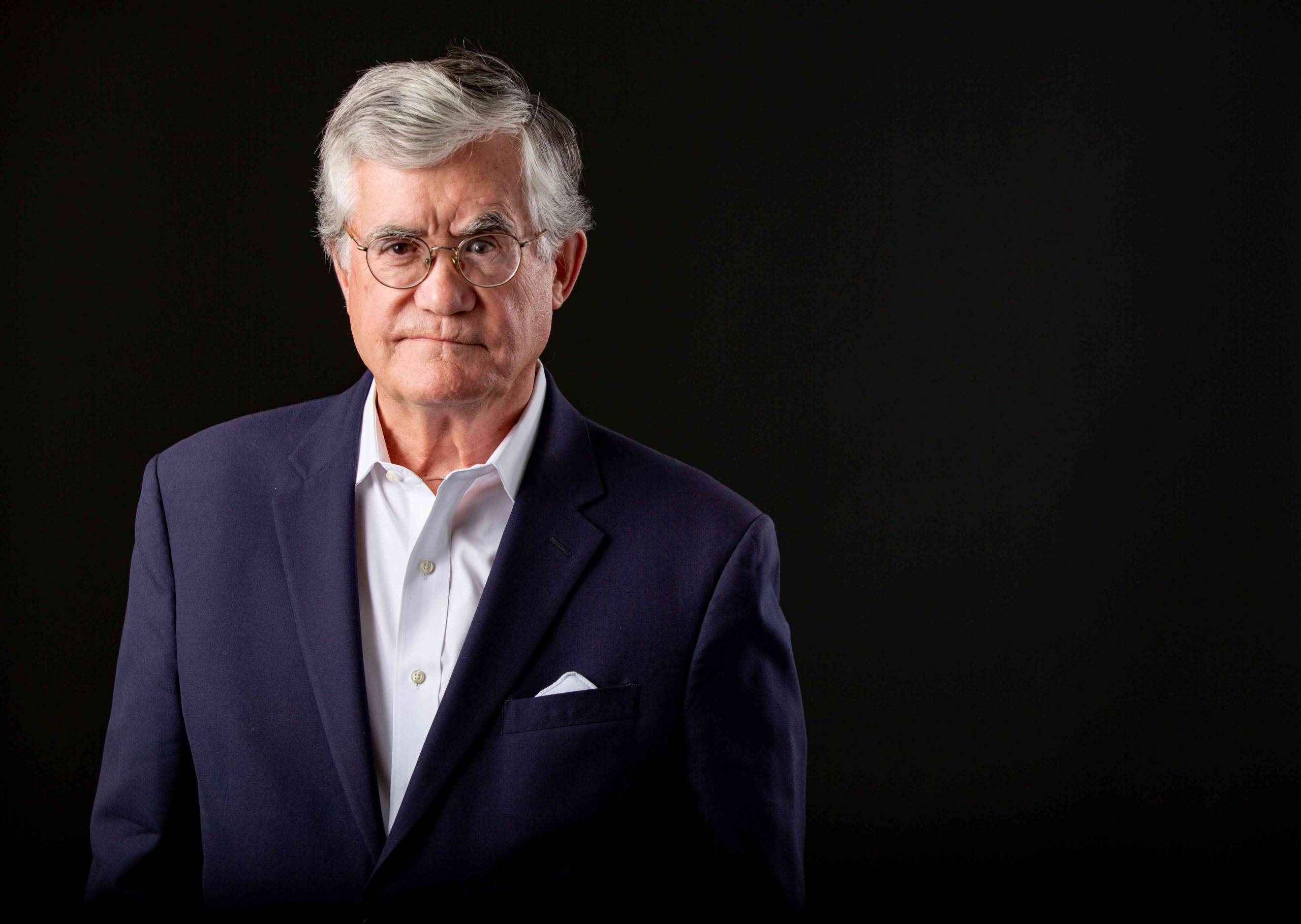
MANCHESTER, NH – For the Senior Director of Public Affairs at Dartmouth-Hitchcock Health and a former Chief Justice of the New Hampshire Supreme Court Judge John T. Broderick Jr. the discussion of mental health in America is one of the most vital topics for people today, especially since a global pandemic that has amplified anxiety, stress and depression.
“To be very blunt, I’m on a mission to start a conversation,” said Broderick.
Broderick has spent the last 45-months traveling to over 230 schools in New England talking to young people about the importance of realizing that mental health is not “a character flaw” or “a weakness;” it’s a veritable health issue.
And, for Broderick, it’s also a personal issue.
Broderick’s son Christian suffers from severe depression and anxiety, something that was not diagnosed probably until the events in Christian’s life, fueled by alcoholic self-medication, landed him in the New Hampshire State Prison in Concord.
Christian is now 12-years sober with a wife and family of his own, and Broderick wants young people to know it’s not necessarily the fault of the people suffering from mental illness, rather a broken mental health system in America.

“People with mental health problems have two things in common: they didn’t ask for it, and they don’t deserve it,” said Broderick.
Spawned by an op-ed Broderick wrote for The Union Leader on May 27 titled “Mental health and the pandemic — opportunity knocks,” a new conversation began on Thursday, Aug. 7 at 7 p.m. in a virtual forum hosted by Dartmouth-Hitchcock Health, Bishop Guertin High School in Nashua and the Reconnection Project, which “works with students, educators, and parents to reduce stress in the entire school community by increasing connection among all three constituencies,” according to co-Founder Jeff Levin’s blog.
Aired on Bishop Guertin’s YouTube channel and moderated by principal Jason Strniste, the forum titled “Community Conversation: Stress Anxiety and Mental Health in Young People Amid COVID-19” featured an eclectic collection of speakers for the first hour, ranging from football coaches to police officers to school administrators and psychologists.
The forum began with Broderick’s personal story of his son and his commentary on the younger generation in America, who he described as “the least judgmental in the history of the country.”
Judge Broderick emphasized that the young people need to know that “it’s okay to not be okay.”
“I feel a bond with the young people who open up to me after I open up to them,” he said, speaking of the students who will approach him with tears and gratitude after his presentations.

Ohio State University head football coach and Manchester Central High School and University of New Hampshire alumni, Coach Ryan Day, then shared his own story of losing his father to suicide when Day was only 9 years old.
“It’s okay to ask for help,” Day said, adding that many of his rough and tumble gridiron players also suffer from many of the same stresses and mental health issues. In the pre-COVID-19 times, Day added, he would encourage his football players to share their experiences with younger players who look up to them.
Nashua South High School psychologist Kelley Howard next shared some of her observations as to “why” anxiety, stress and depression have exacerbated among her students, including the presence of unspecified worry, a sense that they don’t control their lives and generalized restlessness.
But Howard was quick to add that she is also seeing “signs of hope.”
“I’m seeing a lot more students reaching out,” she said.
Manchester Central High School’s Principal John Vaccarezza described the diversity of students he sees struggling with stress and mental health issues daily at his job, ranging from the high achievers to children of immigrant families.

But Vaccarezza shared Howard’s hope — which was to become a common theme among speakers and panelists. “People are talking more than ever before,” he said, echoing Broderick’s sentiments in starting these important conversations.
Many of the speakers also stressed the importance of students having “one caring adult” in the school building that they can turn to in a crisis, something that is lacking in remote learning models, said Kelly Untiet, an administrator at the New Hampshire Department of Education.
Chief Michael Carignan of the Nashua Police Department, who has 27 years of law enforcement experience, discussed the day-to-day struggles police officers have been dealing with since George Floyd’s death in Minneapolis in May, and the subsequent mental health issues they experience, which he described as “death by 1000 cuts.”
Suicide is the No. 1 cause of death for active police officers, a fact which Carignan used to stress the importance of all employers reaching out to “normalize mental health issues.”
After an hour of speakers, Levin then held a panel discussion, including clinical psychologist Dr. Laura Landerman-Garber; the superintendent of the Manchester School District Dr. John Goldhardt; Mary Beth Banios, the superintendent of the Hamilton-Wenham Regional School District in Massachusetts; Sudi Lett, of Granite State Organizing Project and head basketball coach at Manchester Central High School; and Principal Dana Labb of Blanchard Memorial School in Boxborough, Mass.
The panel emphasized the importance of empathy in these trying times, acknowledging that “anxiety is palpable” for teachers, parents and students, according to Banios.

Lett then offered a pragmatic solution for learning empathy. “Read books,” he said. “I encourage all of my students and players to read as much as they can.”
By the end of the forum, co-organizers Broderick and Levin expressed their encouragement by the event.
“We can get some real momentum from this conversation,” said Levin.
Broderick added that he had real hope that the conversation that was started at the forum will continue.
“We can help these young kids, but that will never happen until we talk about [mental health stigmas] and normalize it,” he said.
You can view the entire forum here.







